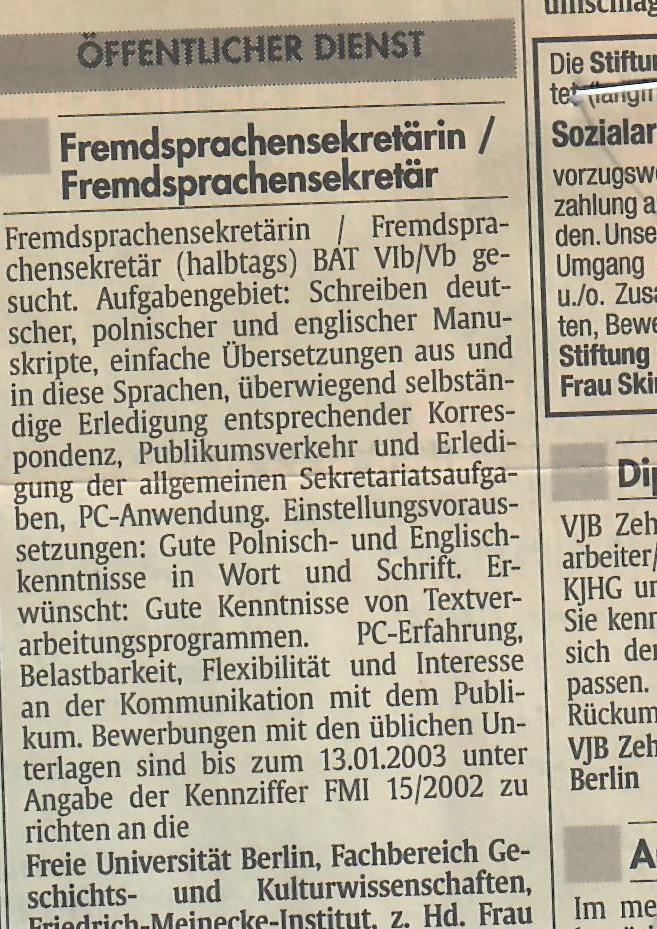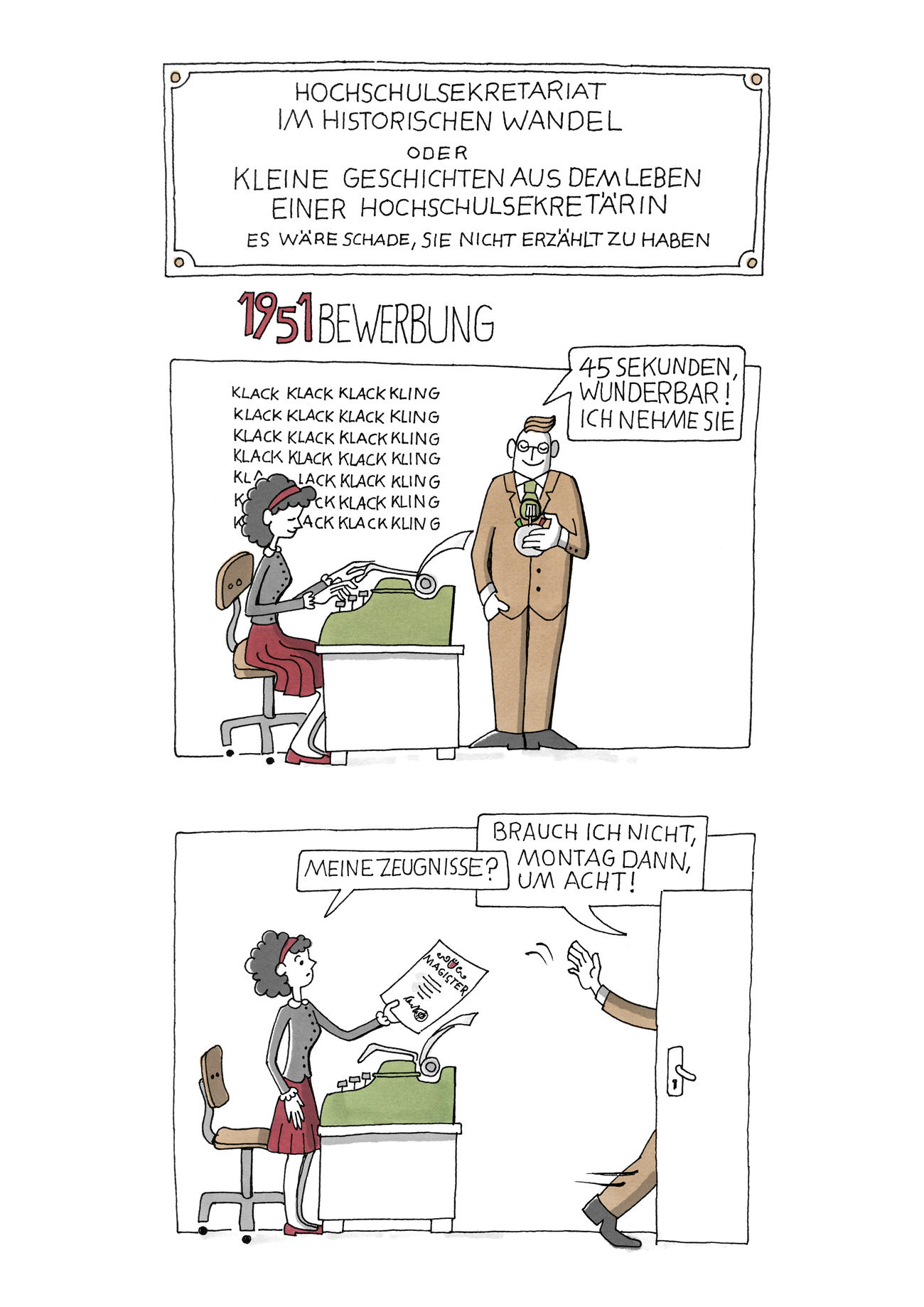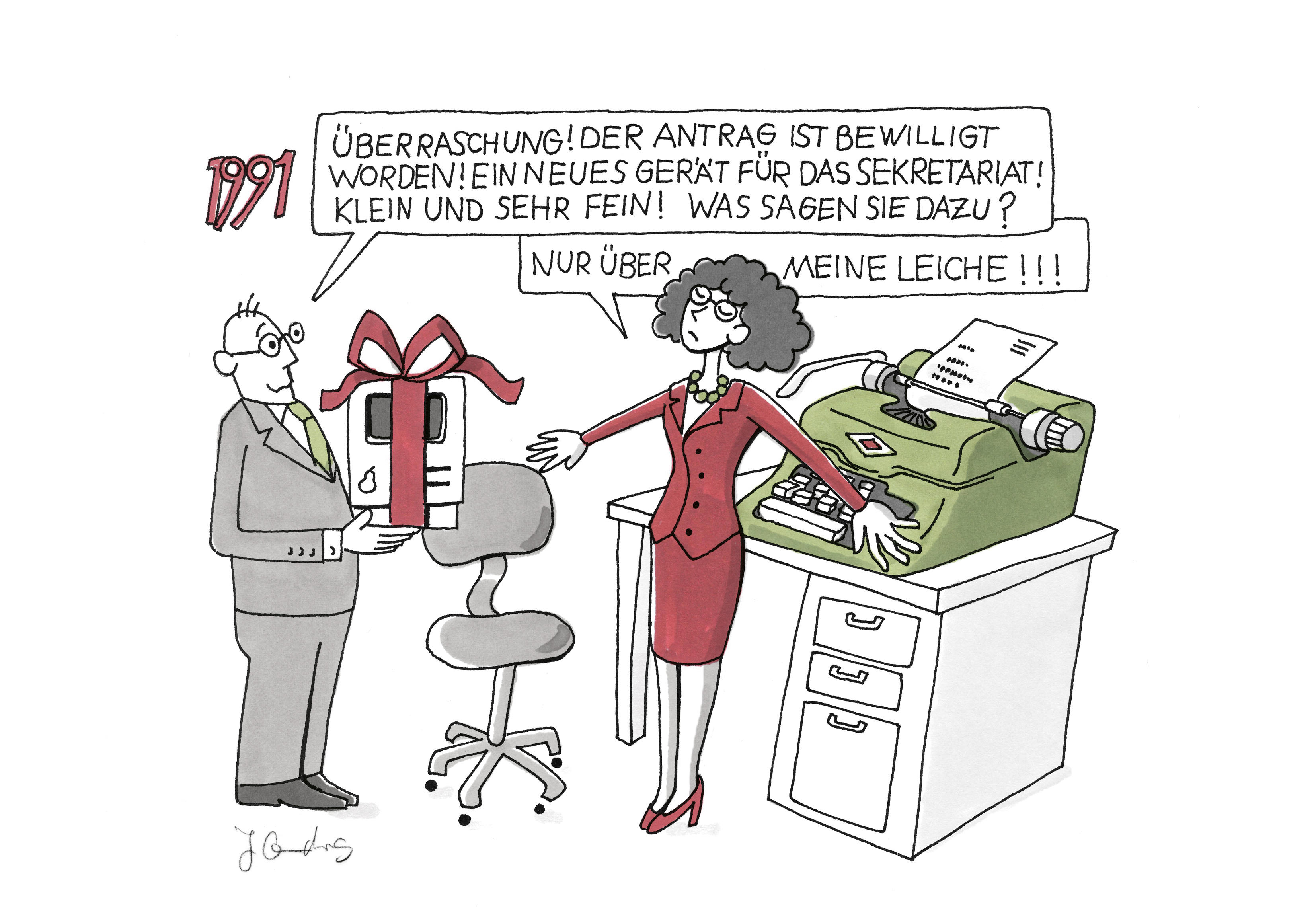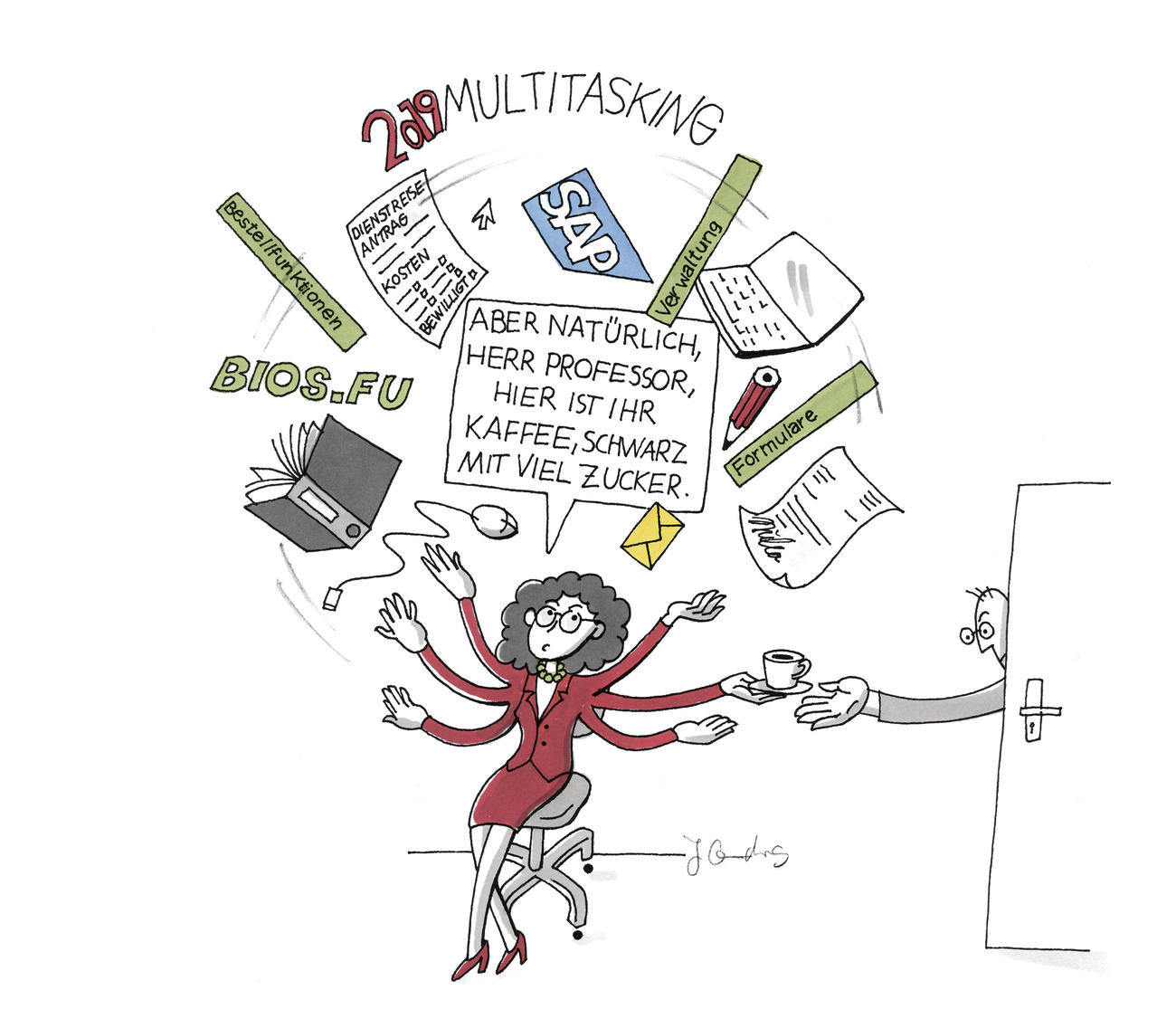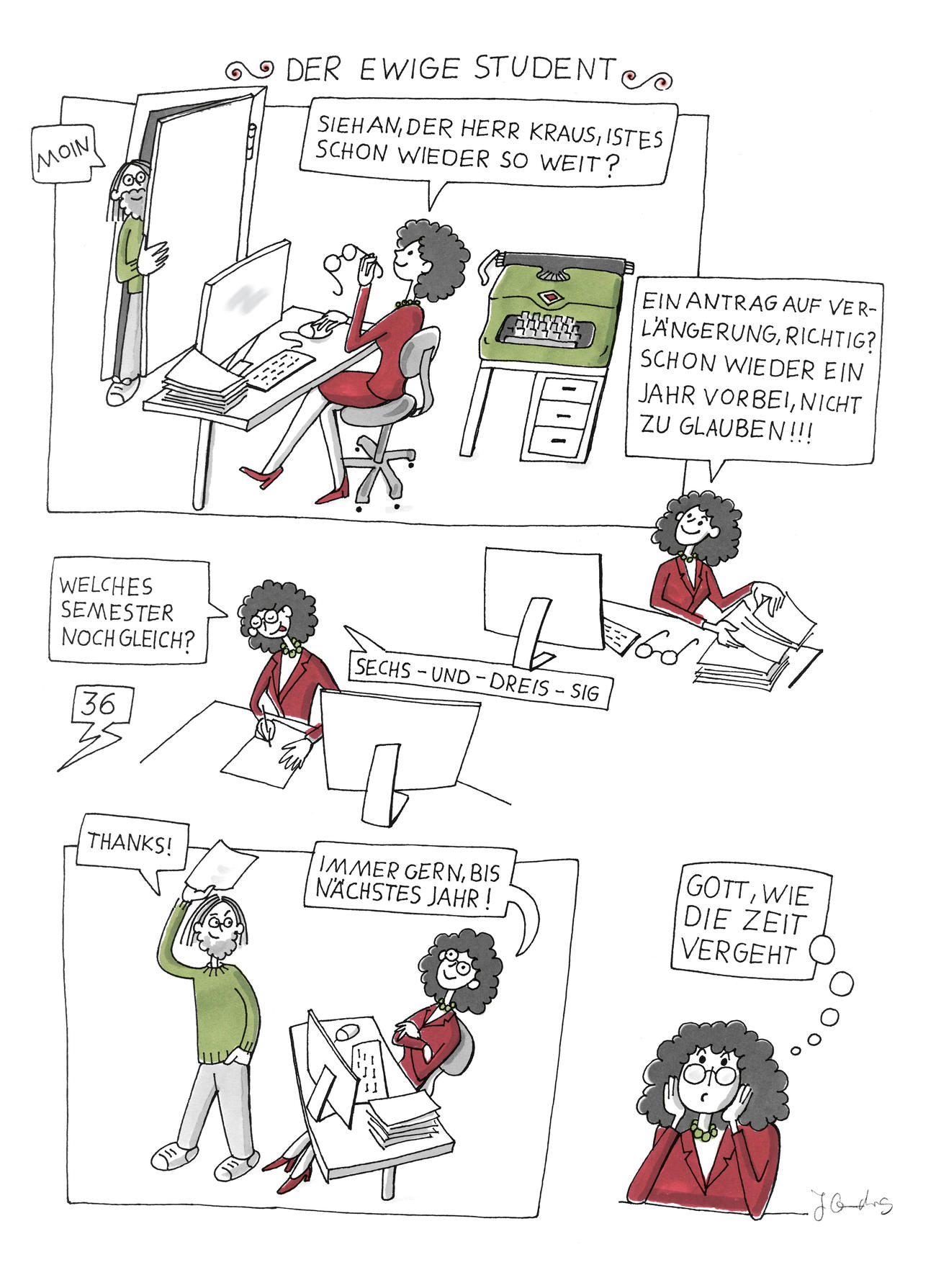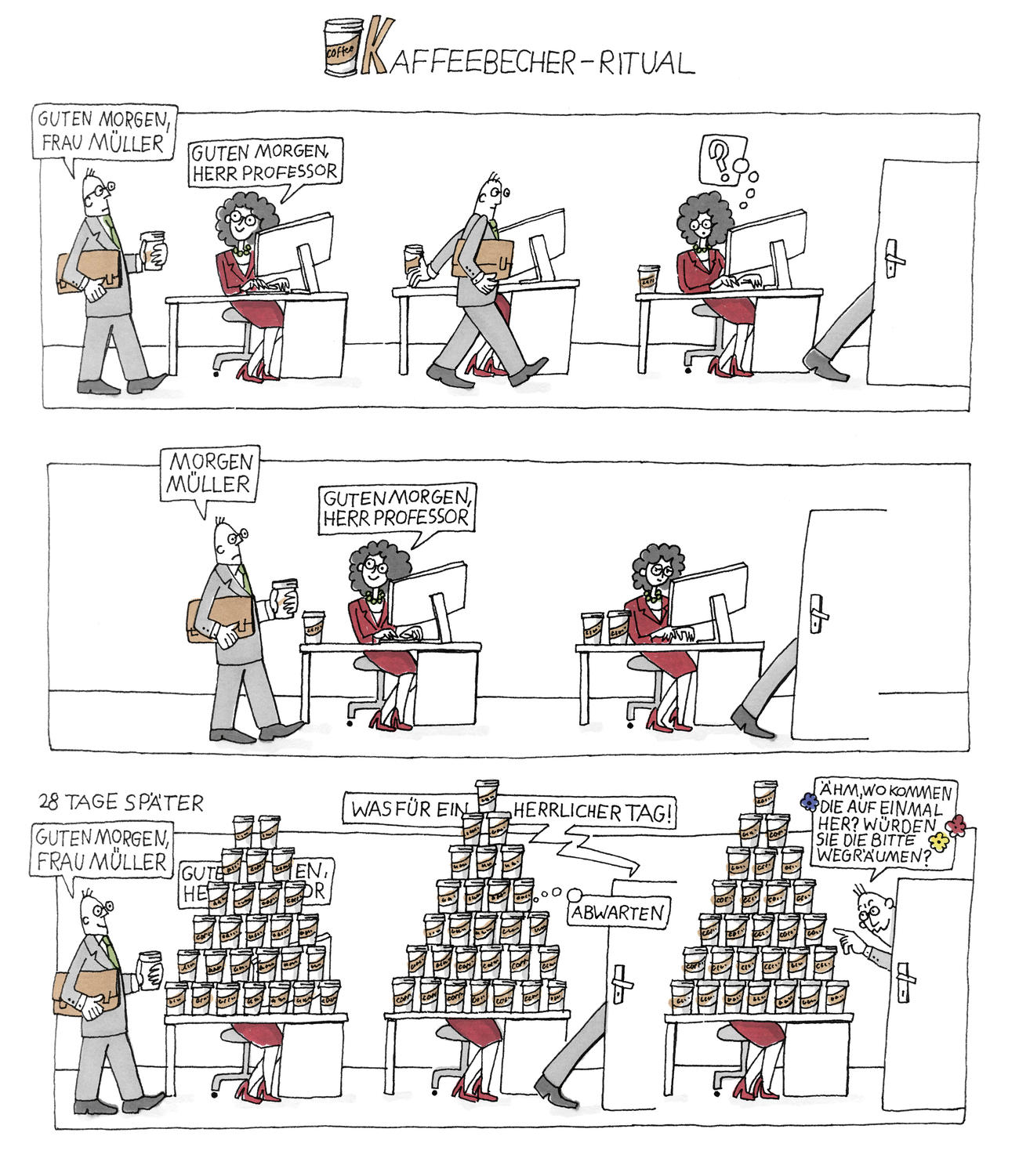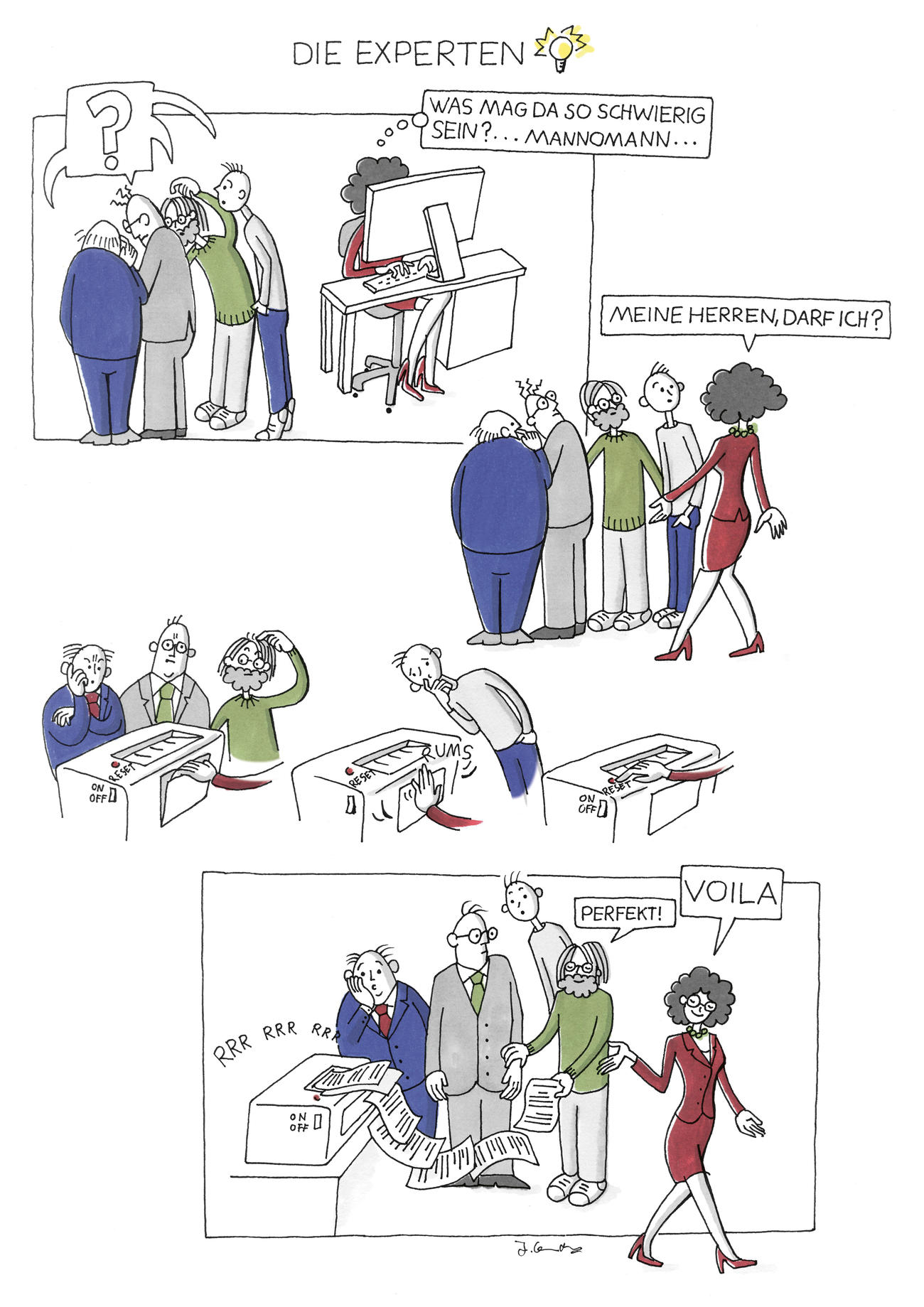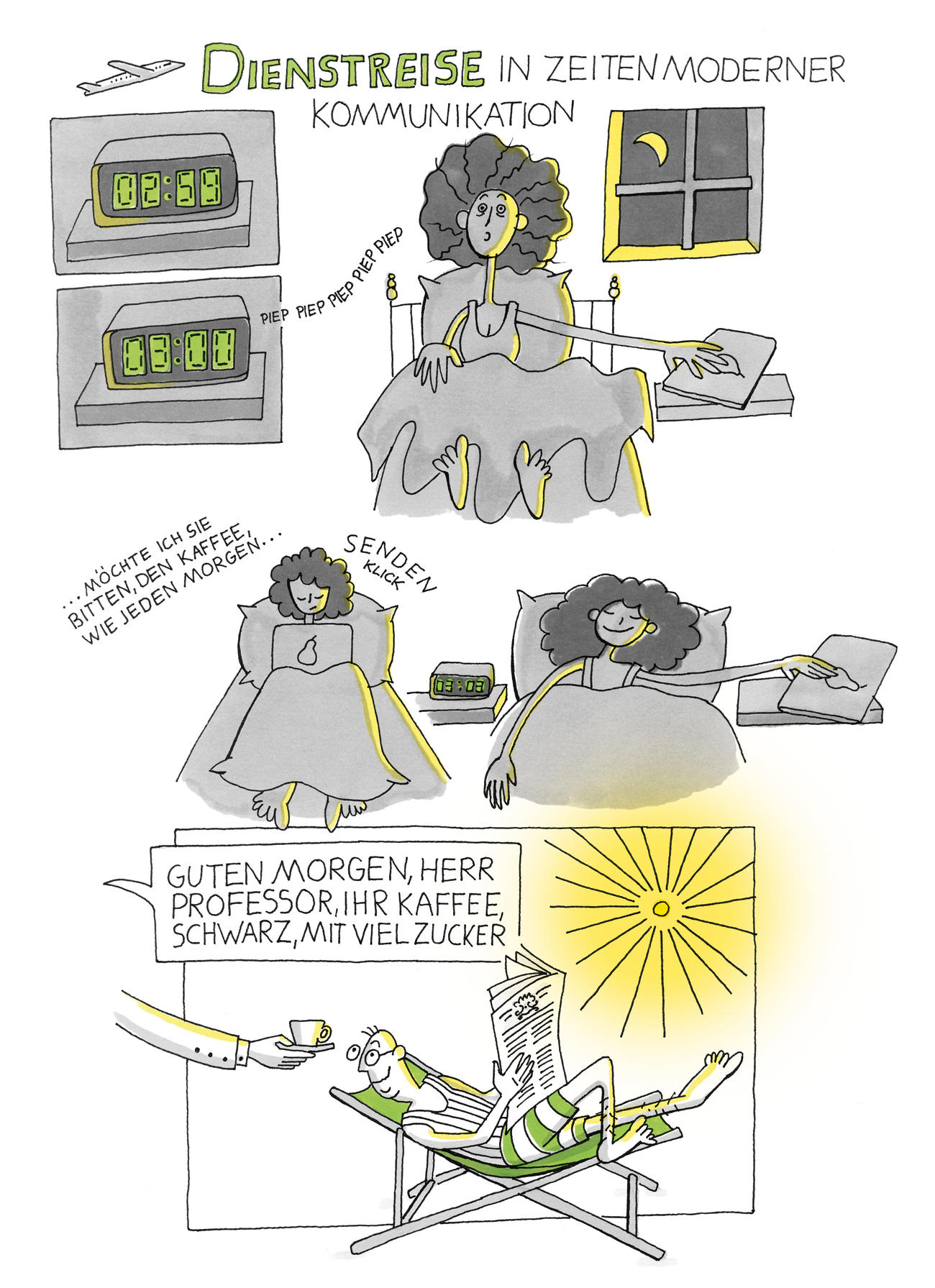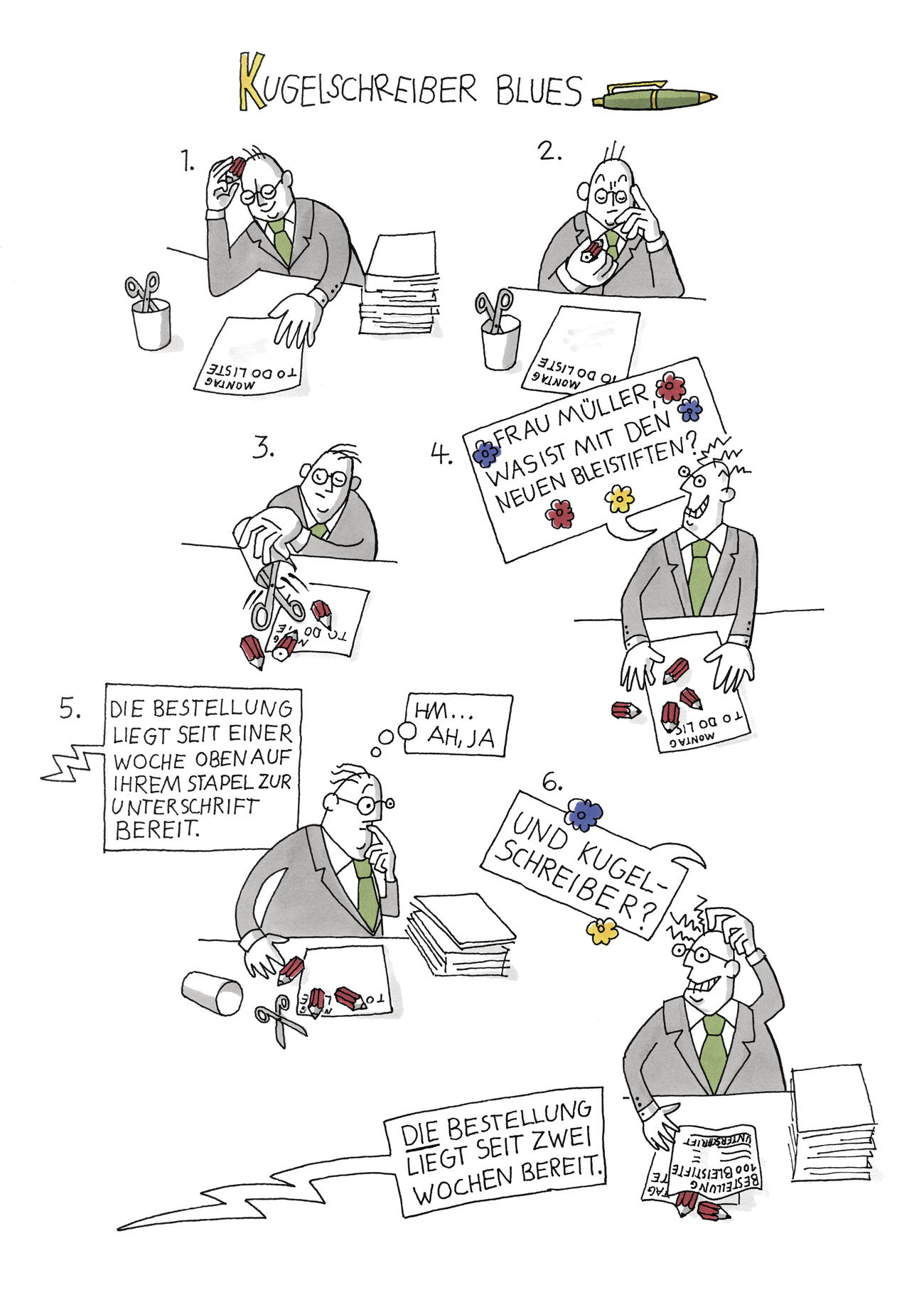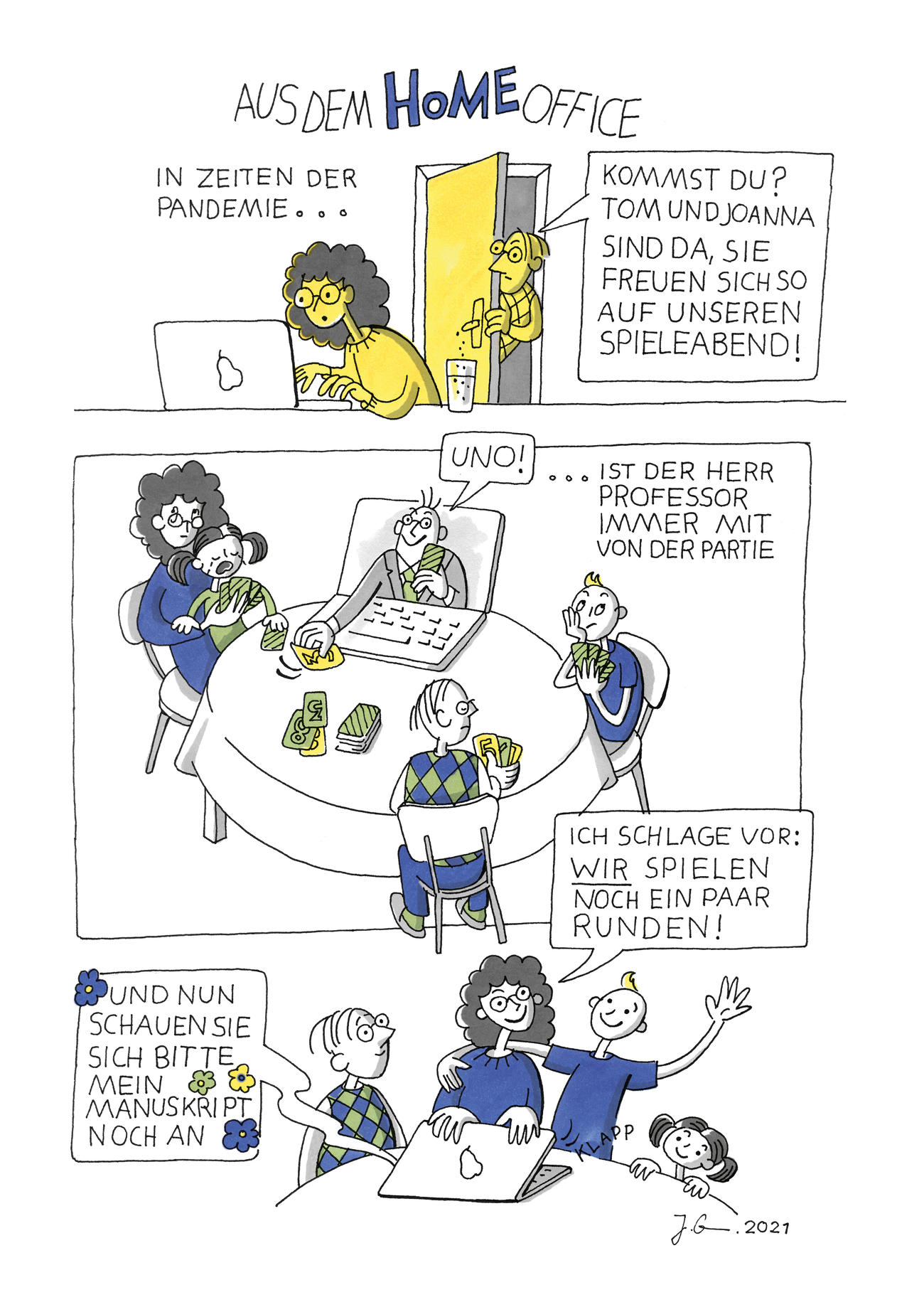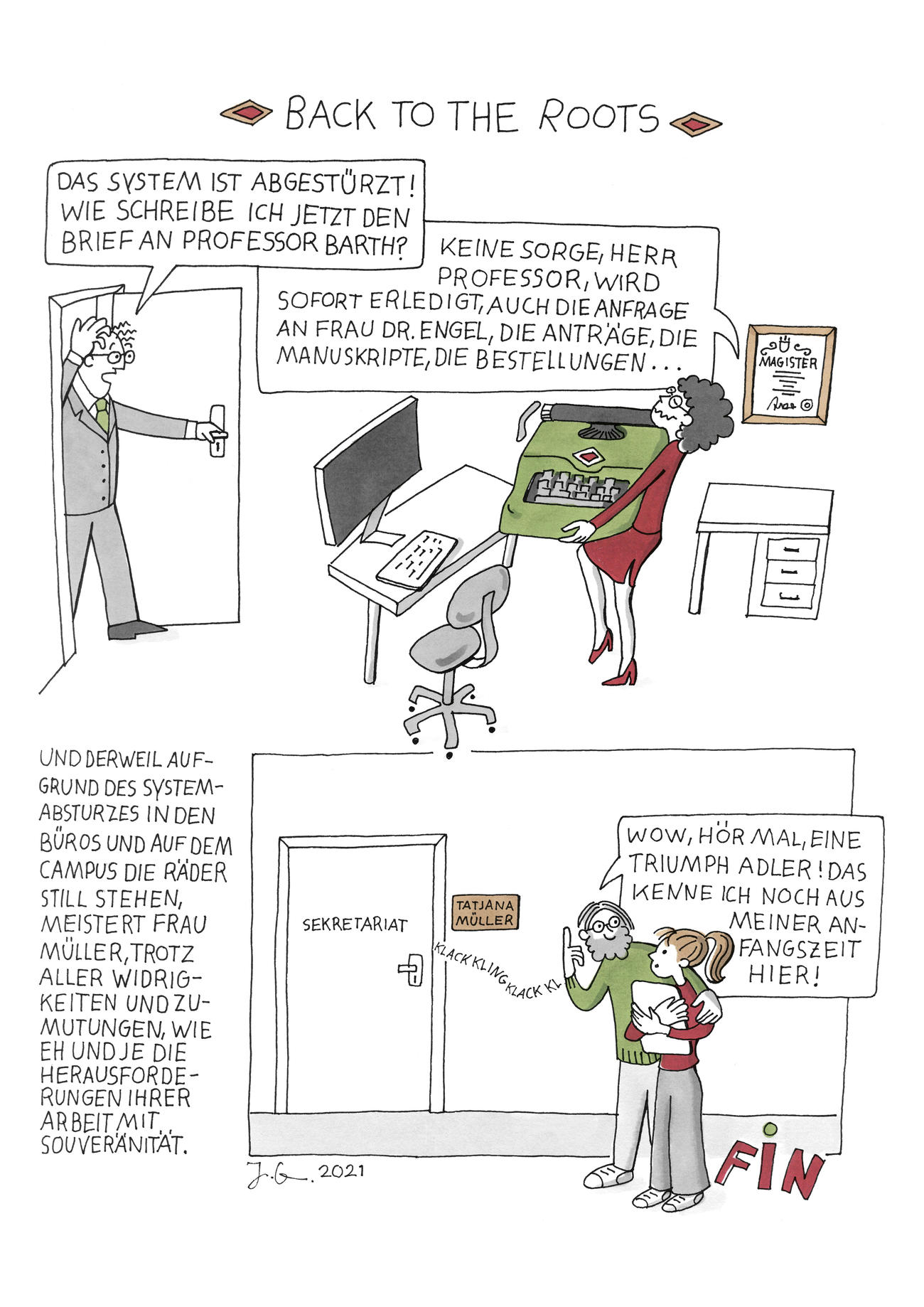University secretariat through the ages. From the typewriter to the online conference
The 70th anniversary of the OEI is an occasion for the secretarial staff to look back and recap how its work has changed over time.
At the time of the OEI's founding until the mid-1980s, secretaries worked with typewriters. They handled correspondence and the professors' appointment book. Orders were handled by order forms. Copies were made using carbon paper. The important criterion for adjustment was the typing speed.
The arrival of the computer, the fax machine, the copier, and the printer in the 1990s in the offices of the universities, required a willingness to learn and further qualification of the secretaries. On the one hand, the new technology resulted in time savings in work processes; on the other hand, secretaries were gradually assigned more and more administrative and organizational tasks.
In particular, the electronic form of correspondence that became possible at the beginning of the new millennium led to considerable changes. More and more superiors wrote e-mails themselves, as a result of which this once-dominant area of responsibility, the main task of the classic secretary, became less important.
With the digitalization processes that then began, various previous tasks from departmental, personnel, study, and commercial administration were delegated to the secretaries, such as monitoring cost centers and accounts, preparing personnel transactions and contracts for work and services, and recording students' attendance and grades in the electronic student administration system Campus Management. In addition, there is event management, administrative support for research projects, and meeting preparation and follow-up.
Today's job postings reflect the extensive as well as multi-layered expansion of our scope of duties.
Another effect of digitization was and is the reduction of staff and working hours: Instead of full-time positions, professors are now only entitled to part-time positions for secretaries, with negative effects on the income and pension situation of employees: More independent tasks in less time for a correspondingly lower salary.
Since 2020, the pandemic has taken the digitization process to another level. Online meetings were established and all administrative processes were digitized.
Secretariats have been moved to the private home office.
The image of the classic secretary from the 1950s no longer exists. As multitasking assistants with versatile tasks, competencies and far greater responsibility than before, it is impossible to imagine university professors' anterooms without them.
The interviews with two former secretaries of the Institute for East European Studies, which you can find here, provide vivid examples of the changes in secretariats: the interview with Natalja Eisenblätter and the interview with Diana Nikolova.
